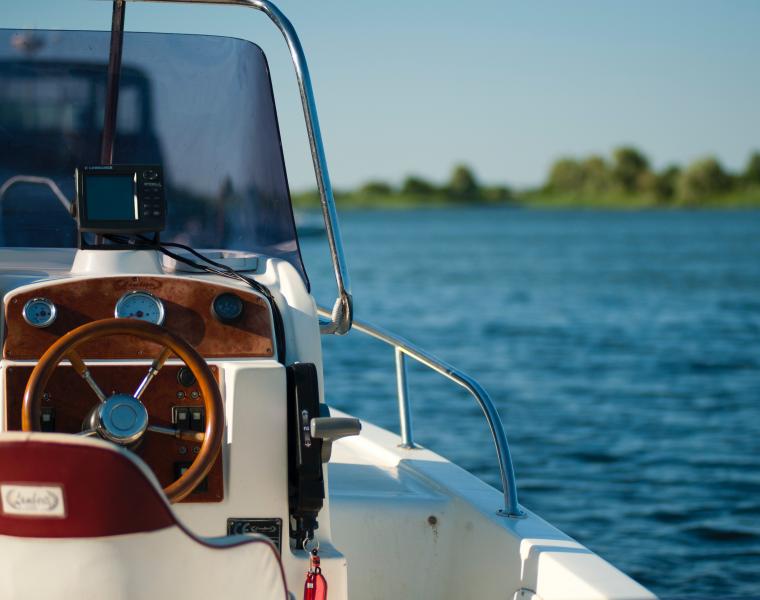Successful kick-off meeting for broad tourism research network
The #NLTourismResearchNetwork has started. Wageningen University and the CELTH Hogescholen Breda University of Applied Sciences, HZ University of Applied Sciences and NHL Stenden University of Applied Sciences, organised a successful meeting on Friday 22 April to start a broad tourism knowledge network. With more than 50 researchers and academics from colleges and universities involved in leisure, tourism, and hospitality, they are taking up the gauntlet of the Council for the Living Environment and Infrastructure (Rli). In its advice 'Valuable tourism', the Rli argued in favor of investing in a powerful knowledge infrastructure for the hospitality domain. In the conference center Domstad, the researchers were briefed on the developments which are already started, to look for opportunities to collaborate on relevant themes.
Edward Huijbens: Building a coalition of experts
Initiator Edward Huijbens commented on the urgency of this meeting for the sector in this post-pandemic period: “It is time to follow the advice of the Rli and work on a more substantiated sustainable future of tourism. Fundamental to this is a robust knowledge infrastructure and a solid knowledge agenda in the fields of tourism, leisure, hospitality, and mobility, in which scientists from all Dutch higher education institutions come together.” Huijbens wants to build a broad coalition of experts in higher education: “The network we are starting today will bring together colleagues from different disciplines and fields who are interested in tourism studies within Dutch educational and knowledge institutions. Our aim is to combine expertise, broaden the relevance of tourism studies in the Netherlands, respond quickly to urgent issues and build an internationally renowned reputation for policy-relevant development of sustainable tourism.” The #NLTourismResearchNetwork should also be a platform for tourism scientists.
Marieke Politiek / NBTC – Sustainable recovery and development of the destination Netherlands
Marieke Politiek, Manager Intell & Insights at NBTC discussed the key priorities of NBTC for the period up to 2023. Perspectief 2030 is the longterm vision, but to achieve this, NBTC is working on relevant and up-to-date data & insights and the creation of a strong profile of the Netherlands as a destination. Cities and regions must also be facilitated to develop optimally. All this should lead to attracting valuable visitors. The philosophy of Perspectief 2030 is about sustainable recovery and the development of the destination of the Netherlands. The focus of NBTC is on the shared interest of residents, visitors, and companies. The net impact of the visitor economy must be positive in terms of social, environmental, and economic impact. For NBTC, the balance between benefits and costs of tourism is important, as are sustainability and human capital.
Menno Stokman / Taskforce – The ideal destination Netherlands
Menno Stokman of CELTH discussed the Action Agenda of Perspectief 2030 on behalf of the Taskforce Cooperation in the Hospitality Economy. The implementation of that agenda is coordinated by this Taskforce. Stakeholders from the triple helix work together in the Taskforce to strengthen the hospitality sector. The Action Agenda functions as a work program with the aim that by 2030 every Dutch person will benefit from tourism and recreation. The Action Agenda contains concrete actions to make the Netherlands a liveable, popular, and valuable destination.
The Taskforce's focus is on destination management, sustainability, and human capital. Menno still had a tough assignment for the sector: “We have the vision, we have the agenda, but now it is time to think about the real mission: What would the ideal destination Netherlands look like? Which ingredients are needed and who should play which role?”
Jeroen Klijs / CELTH – Agenda Conscious Destinations
Jeroen Klijs presented the Agenda Conscious Destinations that CELTH launched earlier this month. The reason for this knowledge agenda is the major task of the sector to optimise the social impact of tourism and recreation in a complex and dynamic context. With this agenda, CELTH wants to lay the foundation for a powerful knowledge infrastructure so that policymakers can make more informed decisions. This dynamic knowledge agenda must also become a guideline for knowledge and education partners. CELTH has focused on the destination because all subsectors of the domain come together here, the domain interacts with the environment, synergy or competition with other sectors is created and the domain can contribute to societal challenges. In a Conscious Destination, the social value of the hospitality domain is put first. All actors work on the most positive possible economic, social, and ecological impacts for residents (quality of life), visitors (quality of experiences) and professionals within the domain (quality of work). CELTH has chosen five themes where knowledge is built on knowledge. It concerns living environment, human capital, organising capacity, smartness, and leisure offer. These themes should have a structuring effect but should not be seen as limiting silos and are certainly not there for eternity.
Harald Buijtendijk / CELTH – Sustainable Research Agenda
Harald Buijtendijk presented the Sustainable Research Agenda that has been developed over the past period on behalf of CELTH. This agenda is the prelude to a Sustainable Roadmap for the sector. To arrive at this agenda, the researchers used a literature review to identify the nationally and internationally relevant sustainable themes, impacts, and policy. The main challenges and related research questions have been formulated through stakeholder interviews. No fewer than 270 were related to 501 sustainable themes. The most frequently mentioned themes were energy use, greenhouse gases and social quality. This resulted in five priority projects:
- Communication for sustainable consumption (NL)
- Implementation of sustainable fuels in all modes of transport and production sectors (EU)
- Business models and products for more sustainable consumption (EU)
- Tourism as a catalyst for sustainability in other environmental policy areas (EU)
- Circular economy destinations & events (NL)
Despite the positive project results, Harald did not close so positively. “Despite the increasing rhetoric on sustainability and an apparent 'willingness to act', there are significant knowledge gaps, i.e., differences between the priorities of experts and stakeholders. Particularly troubling are cases where stakeholder impact priorities rank lower than expert impact priorities, highlighting the importance of this research agenda.” According to Harald, collaboration with other sectors can accelerate tourism. “The sustainability challenges identified are systemic and span a wide range of policy areas. By recognizing this interdependence, room is created for strategic collaborations across subsector boundaries. In this way, cost sharing (time, resources) is possible, and projects become more feasible in terms of social relevance and associated financing options.
Ewout Versloot / NBTC – Roadmap climate neutral tourism NL
Because it is not possible to adapt all problems at the same time, a roadmap that is now being developed is necessary. This roadmap can provide the much-needed acceleration by putting various projects under 1 concept high on the agenda of stakeholders. This allows optimal collaboration within and outside sectors. Ewout Versloot of NBTC is the project leader of the Roadmap Climate Neutral Tourism Netherlands. It will be presented at the Tourism Summit in the autumn of 2022.
Five work sessions
In the afternoon, the participants discussed five themes:
- Tourism and environment: creating and preserving attractive places and a sustainable future for tourism.
- Tourism 'on the job': education and training, skills and experience of people working in tourism.
- Tourism management and organisation, including the synergy between leisure, tourism and hospitality.
- Measuring tourism: supply, demand, and impact.
- Tourism, experiences and meaning, the socio-cultural aspects of tourism and the tourist.







